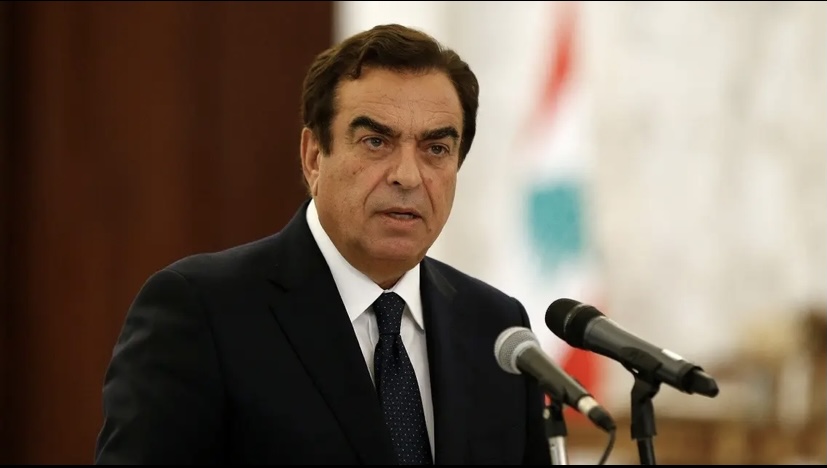31 October 2021

Saudi Arabia told Lebanon’s ambassador Fawzi Kabbara to leave the country within 48 hours following a widespread backlash over remarks made by his country’s Information Minister George Cordahi about the war in Yemen.
Earlier, Saudi Arabia had summoned Kabbara over Cordahi’s remarks, in which he said that Saudi Arabia’s war in Yemen was “pointless and should stop.”
The oil-rich kingdom also recalled its own ambassador from Beirut for consultations, according to a Saudi foreign ministry statement carried by official news agency SPA late on Friday. It will stop all imports from Lebanon and ban its citizens from traveling there due to the “increasing instability of the security situation” in the country, it said.
“The kingdom’s government regrets the outcome of the relations with the Lebanese Republic due to the Lebanese authorities’ ignoring of the facts and their continued failure to take corrective measures,” according to the Saudi statement.
Some neighboring Gulf nations reacted in solidarity with Saudi Arabia. Bahrain asked the Lebanese ambassador to leave and Kuwait gave the chargés d’affaires 48 hours to get out of its territories. The United Arab Emirates was the latest, saying it is retracting its diplomats from Lebanon and prohibiting its citizens from traveling there.
Lebanese Prime Minister Najib Mikati said in a statement on the cabinet’s website on Saturday that Cordahi’s position does not represent that of the government.
“One of our government’s priorities is working to restore relations and historical ties between Lebanon and its Arab brothers,” Mikati said. He expressed his regret over Saudi Arabia’s decision and hoped the kingdom would reconsider it.
This isn’t the first time a Lebanese minister has spurred this kind of backlash. Earlier this year, Foreign Minister Charbel Wehbe stepped down after comments deemed “insulting” by the Gulf kingdom. He appeared to blame Gulf nations for the rise of extremist groups and dismissed their citizens as Bedouins, an implication that they were uncultured.
Oil-rich Gulf nations were once Lebanon’s main financial benefactors. Saudi Arabia even helped broker the deal that ended Lebanon’s 1975-1990 civil war, but ties have become increasingly strained as the Iranian-backed Hezbollah group has gained political and military influence over a fragile country that straddles the region’s political fault lines. The relationship deteriorated further after Michel Aoun, a Christian ally of Hezbollah, was elected president in 2016.
Bloomberg
